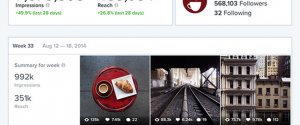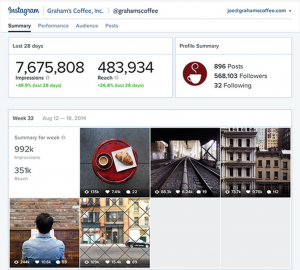- Brands are active on social networks to reach engaged audiences, and the networks are finding creative ways to monetize their involvement. SoundCloud this week announced a new advertising platform, just as Instagram rolled out its analytics tools for brands. Both SoundCloud and Instagram have afforded brands huge organic growth; the challenge will be to offer them new business tools without alienating individual users.
- We’re all suffering from The Stream, a deceptively gentle term for the firehose of ideas and links aimed at us every day by well-meaning friends, colleagues, and social network connections. Can radical scarcity improve quality? That’s the premise behind This., a social network incubated at the Atlantic which allows users to share a single link each day.
- Twitter is addressing onboarding issues to make the platform more compelling, but both the 140 character limit and a longstanding, insider-y community can mean that new users encounter daunting jargon. If you’re struggling to tell your RT from your MT, here’s an illustrated guide just for you.
- Launching a digital project can be like pulling the thread on a sweater — the more the new site/app/service makes possible, the more internal processes get disrupted and ideas get awakened. In a newly-launched responsive design podcast, Miranda Mulligan of the Boston Globe describes the politics between the newsroom and the design team, and how responsive design brought them together.
- In far too many organizations, potentially transformative digital and social strategy is outsourced to agencies or relegated to interns. Or at least, it’s reliably blamed on the interns when it all goes horribly wrong.
Weekend fun: Take your pick: you can watch a fascinating brief look at texting and the internet in film, or while away the hours with Serendipity, a gorgeous visualization of songs played simultaneously on Spotify.

